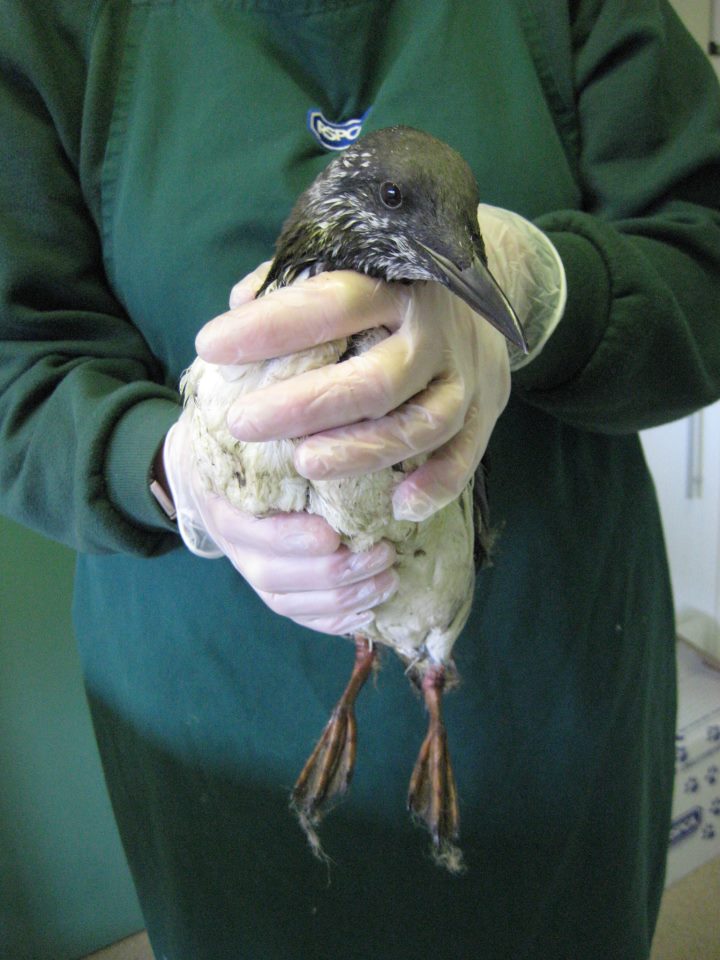Hundreds of Slime-Covered Seabirds Wash Ashore, Puzzle Scientists

A mysterious greasy substance has been found on hundreds of seabirds — some dead, others injured — that have been washing up along England's south coast.
The birds, mostly guillemots, have been discovered along beaches from Weymouth to Torquay covered in the waxy film; many have very sore legs, according to the Royal Society for the Prevention of Cruelty to Animals, which has been rescuing the slime-coated creatures.
Environmental officials with the U.K.'s Maritime and Coastguard Agency (MCA), who are investigating the case, still don't know where the greasy substance came from, but they believe it is a "refined mineral-based oil mixture."
"Initial analysis indicates that the contaminant is a refined mineral oil and further analysis results are awaited," Stan Woznicki, the MCA's head of counter pollution, said in a statement Friday. [In Photos: Major Oil Disasters at Sea]
"We have not received any specific reports of pollution within the English Channel area, but today we sent one of our counter pollution surveillance aircraft to investigate," Woznicki added. "It covered the sea areas between Dover and the Isles of Scilly, but no pollution was detected."
MCA officials said the initial findings indicate that the substance is not palm oil, as had been suggested by at least one scientist. Simon Boxall, of the UK's National Oceanography Centre, Southampton, had issued a statement saying he suspected palm oil may have been accidentally spilled or illegally dumped from a cargo ship crossing the English Channel. In any case, Boxall said that finding the source of the spill likely will be difficult.
"To put it into perspective: the English Channel covers about 30,000 square miles. A slick from an illegal dump would be at most 1 square mile," Boxall said. "That's a bit like trying to find an averagely-sized village in England, but with no clue where it is, and it's moving around!"
Get the world’s most fascinating discoveries delivered straight to your inbox.
While this mysterious spill is not common, it's not unique, either. "There was a large palm iil spill along the south coast [of England], which affected the bird life and did eventually hit the coast," Boxall told LiveScience. "It was assumed to be from illegal tank washing, but never tracked to the criminal ship."
Follow LiveScience on Twitter @livescience. We're also on Facebook & Google+.
 Live Science Plus
Live Science Plus






